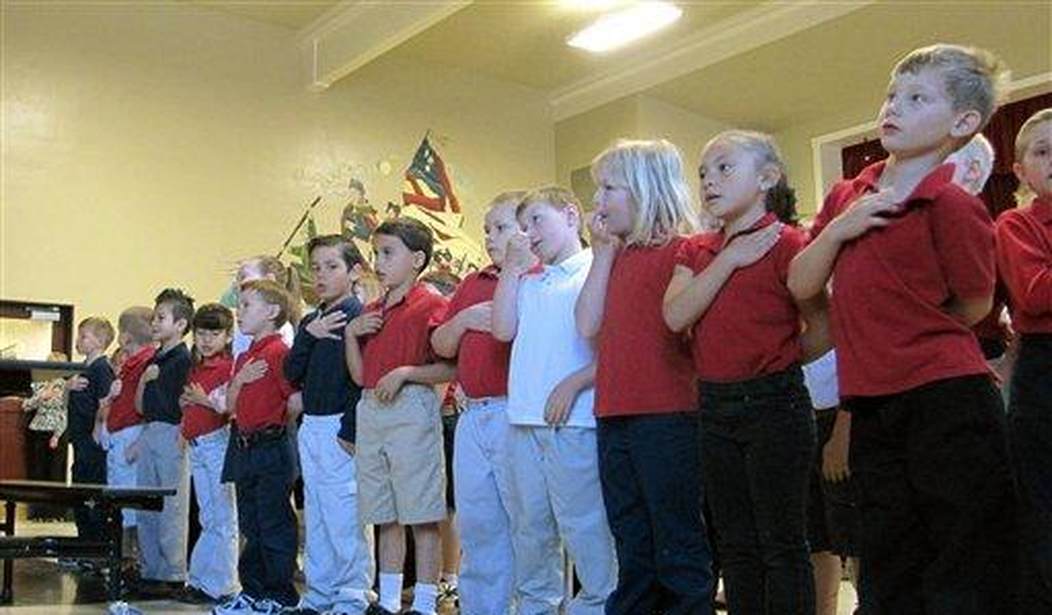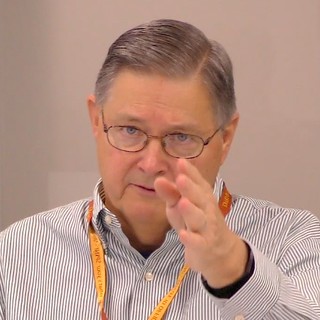It was not long after I picked up and began reading my friend Tim Goeglein’s profoundly important new book — Toward A More Perfect Union: The Moral and Cultural Case for Teaching the Great American Story — that it had me all but in tears.
I came upon this paragraph in which Goeglein, a Focus on the Family Vice-President, cites the results of a 2009 survey of public high school students in Oklahoma, the state in which I grew up during the 1950s and 1960s:
“For example, a 2009 survey of Oklahoma public high school students found, when faced with 10 questions drawn from the U.S. citizenship test all legal immigrants must take to become citizens, the students floundered. Only one in four could correctly name George Washington as the first president of the United States. Only 10 percent of them knew there are nine justices on the Supreme Court, and only 29 percent knew the president headed the executive branch of government. Only three percent were able to answer six out of the 10 questions, the passing score for the U.S. citizenship test.”
Remember that Oklahoma was then and remains today one of the reddest states in the country; it’s one of those with the biggest margins by which now-former President Donald Trump carried it in 2016 and again in 2020.
This is the Oklahoma that is still known among many as “the buckle of the Bible Belt” because there are so many churches of the Southern Baptist, Methodist, Presbyterian, Catholic, and other denominations, churches that even today are not infrequently full on Sundays.
But that survey clearly was not about the Oklahoma of my childhood and adolescence. As I pondered the results, I was reminded of a series of books that I discovered on one of my fifth-grade classroom’s bookshelves.
I don’t recall the name of the series, but each book dealt with one of the heroes of early America: Washington, Thomas Jefferson, John Paul Jones and Oliver Hazard Perry, Abraham Lincoln and Frederick Douglass, and many, many others.
I was absolutely intrigued by their stories, so much so that a lifelong love of American history and the principles on which it was founded was sparked. As much as I loved in those youthful days the New York Yankees of Mickey Mantle and Bobby Richardson and the Indy 500 of A.J. Foyt and Roger Ward, it was America — Washington crossing the Delaware, the Constitution and The Federalist Papers, Calhoun and Webster debating, the settling of the West, America’s role in winning two world wars, and the incredible freedom of our people — that moved me like nothing else.
Much of the credit belonged to the teachers I encountered along the way, but none more so than Mrs. Unger, my 10th-grade civics teacher. You knew by the third word you heard out of her mouth that she was a brash, very liberal New Yorker. Lord only knows how or why she was in Oklahoma.
But she was, and from her perspective, she believed in America, too. So throughout that year in which I was in her class, we talked, we discussed, and, especially, we debated the news of the day and how it related to the Declaration of Independence, separation of powers, the First Amendment, and so much more.
The tragedy is not that by 2009 there were no longer teachers like Mrs. Unger, but that, as Goeglein makes clear, even in places like deep-red Oklahoma, things have gotten so much worse in our public schools in the years since that distressing survey was conducted.
Related: Is It Time to Abandon Public Schools?
The reality today is that our schools don’t teach American history, they trash it. Goeglein quotes liberal historian Arthur Schlesinger on why this is so damaging:
“History is to the nation much as the memory is to the individual. The individual who loses his memory doesn’t know where he came from or where he’s going and he becomes dislocated and disoriented.”
That Goeglein has done his research is made crystal clear by his chapter on the host of distortions and outright lies that made Howard Zinn’s A People’s History of the United States such an enduringly pernicious influence on multiple generations of young Americans.
Zinn, “the godfather of the radical attack on America’s history and heritage,” according to Goeglein, published his tome in 1980, and it quickly became the standard work upon which curricula were based throughout the nation’s public schools and many private ones as well. Goeglein summarizes Zinn’s impact:
“Zinn singlehandedly transformed the study of history in American public education from the discipline of surveying facts and events to the display of ‘reframing’ and ‘reimagining” facts to fit a particular narrative. The astonishing acceptance of A People’s History paved the way for historically unsound work like the 1619 Project despite its blatant inaccuracies.”
In other words, America has not merely forgotten its past, it has been consumed with trashing it and substituting in its place the countless radical Left lies and myths that teach generation after generation that ours is a nation entirely based on oppression, privilege, and fraud. And we wonder why our graduates aren’t proud to be Americans?
Fortunately, Goeglein does not leave readers without hope. He points to the “Parents Revolution” that has rallied legions of concerned Moms and Dads to go to school board meetings, often for the first time ever, and demand answers about what their children are being taught and a return to teaching “the basics,” including fact-based American history.
That revolution has reached Congress, too, as a group of House Republicans just this week introduced the “Parents Bill of Rights,” which among much else guarantees that curriculum is made public and accessible and that parents are the ultimate authority over their children, not the state.
But revolutions take time, and in his concluding chapter, Goeglein warns:
“Taking a stand will not be easy. As I have mentioned, the Left is willing to spend countless millions of dollars to indoctrinate school children, while shutting out parents. It may mean personal sacrifice such as placing our children in a classical school or a strong faith-based college, or homeschooling them. But for the future of our children, and our country, we must do it. The very future of Western civilization is at stake.”
Revolutions are never easy, but then neither was conceiving and achieving the great American story for our ancestors. As Ronald Reagan asked one night not that long ago, will we rescue America for our children and our grandchildren, or sentence them to a thousand years of darkness?
It is indeed a time for choosing. And the hour grows late.










Join the conversation as a VIP Member